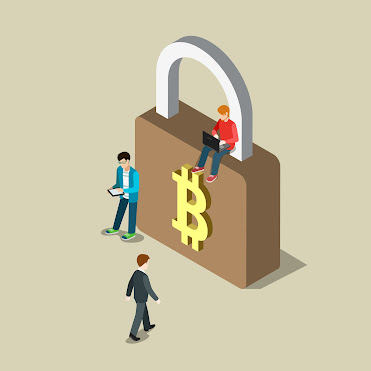Getting your cryptographic cash wallet is fundamental for safeguard your high level assets from robbery, incident, and various risks. As advanced monetary standards become all the more notable, they similarly become a target for cybercriminals. In this article, we will explore various techniques and best practices for getting your computerized cash wallet, giving a broad manual for safeguarding your hypotheses.
Understanding Cryptocurrency Wallets
- Hot Wallets: These are associated with the web and are more helpful for ordinary exchanges.
- Cold Wallets: These are disconnected wallets that give a more elevated level of safety.
Types of Cryptocurrency Wallets
1. Hardware Wallets
They are seen as one of the most trustworthy approaches to taking care of cryptographic types of cash since they are not related with the web, making them safe to online hacking attempts.
- Examples: Record Nano S, Trezor.
- Pros: High security, assurance against malware and online dangers.
- Cons: Can be lost or harmed, cost cash to buy.
2. Paper Wallets
They are made by printing out your keys and putting away them in a protected spot.
- Pros: High security, disconnected capacity.
- Cons: Can be effortlessly lost or harmed, not advantageous for regular exchanges.
3. Mobile Wallets
Portable wallets are applications introduced on your cell phone. They are advantageous for day to day exchanges and can store numerous kinds of digital currencies.
- Examples: Trust Wallet, Mycelium.
- Pros: Helpful, simple admittance to reserves.
- Cons: Powerless against malware and phishing assaults, reliant upon the security of your cell phone.
4. Desktop Wallets
- Examples: Departure, Electrum.
- Pros: Command over your confidential keys, frequently have extra security highlights.
- Cons: Defenseless against malware and hacking, requires secure PC rehearses.
5. Web Wallets
Examples: Coinbase, Binance.
- Pros: Advantageous, available from anyplace.
- Cons: Helpless against hacking, subject to the security practices of the specialist co-op.
Best Practices for Securing Your Cryptocurrency Wallet
1. Use Strong Passwords
Guarantee your secret word is:
- No less than 12 characters in length.
- Not effectively guessable (try not to utilize individual data).
This could be a code shipped off your cell phone or an application like Google Authenticator.
- Pros: Upgrades security, forestalls unapproved access regardless of whether your secret key is compromised.
- Cons:Can be awkward assuming that you lose admittance to your subsequent element.
3. Keep Your Software Updated
Refreshes frequently incorporate security fixes that fix weaknesses.
- Pros: Safeguards against known exploits and bugs.
- Cons: Requires customary consideration and activity.
4. Reinforcement Your Wallet
Back up your wallet consistently to guarantee you can recuperate your assets if there should arise an occurrence of misfortune or equipment disappointment. Store reinforcements in numerous protected areas, for example, a USB drive or outer hard drive.
Masters: Guarantees recuperation of assets, gives inward feeling of harmony.
Cons: Reinforcements should be gotten to forestall unapproved access.
5. Utilize a Protected Web Association
Public organizations are frequently less secure and can be taken advantage of by programmers.
Geniuses: Diminishes hazard of capture by programmers.
Cons: May require specialized information to set up and utilize a VPN.
6. Be Careful about Phishing Assaults
Phishing assaults endeavor to fool you into uncovering your confidential keys or login certifications. Be wary of spontaneous messages, messages, or sites that request your data.
Tips:
Confirm the credibility of any correspondence.
7. Keep Your Hidden Keys Secure
Your confidential keys are the most critical part of your cryptographic money wallet.
Tips:
Use equipment or paper wallets to keep keys disconnected.
8. Screen Your Records Routinely
Early discovery of dubious exchanges can assist you with making a move instantly.
Professionals: Recognizes and address security issues rapidly.
Cons: Requires customary consideration and checking.
Advanced Security Measures
1. Multi-Mark Wallets
This adds an extra layer of safety by guaranteeing that no single substance has unlimited authority over the assets.
Masters: Upgraded security, appropriate for shared services or associations.
2. Cold Capacity
Cold capacity includes keeping your digital forms of money totally disconnected. This can be accomplished utilizing equipment wallets, paper wallets, or even air-gapped PCs (PCs that are not associated with the web).
Professionals: High security, insusceptible to online dangers
Cons: Less helpful for incessant exchanges
3. Isolated Observer (SegWit)
Isolated Observer (SegWit) is a convention update that diminishes the size of exchanges, consequently expanding the blockchain's ability and further developing security. Utilizing a wallet that upholds SegWit can upgrade the security of your exchanges.
Aces: Diminishes exchange expenses, upgrades security
Cons: Requires utilization of a SegWit-viable wallet
Conclusion
Getting your cryptographic money wallet is fundamental to shield your advanced resources from robbery, misfortune, and different dangers. By understanding the various sorts of wallets and carrying out prescribed procedures, for example, utilizing solid passwords, empowering two-factor validation, keeping your product refreshed, and backing up your wallet,Additionally, high level estimates like multi-signature wallets and cold stockpiling can give an additional layer of security. Keep in mind, the security of your digital currencies eventually relies upon your carefulness and adherence to security best practices. Remain informed, remain careful, and guarantee that your computerized resources stay no problem at all.
